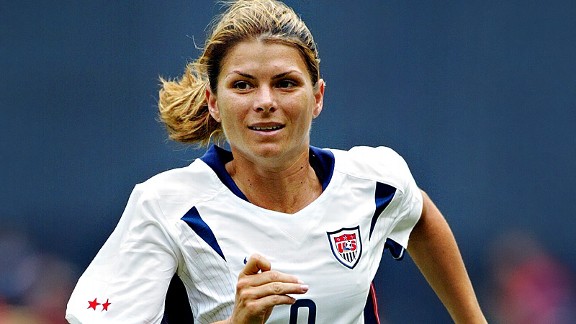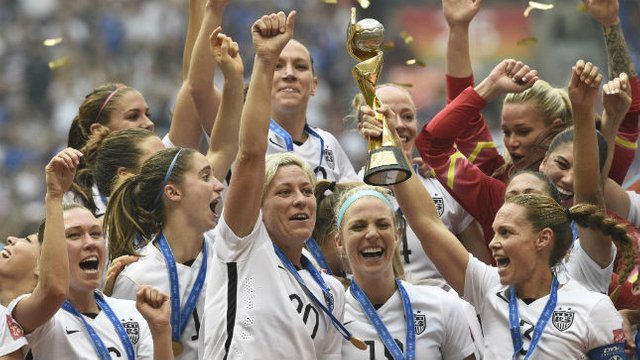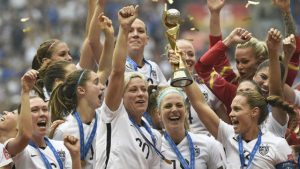Mariel Margaret Hamm was recognized as the best female football player in history. She was born in Selma, Alabama, the USA on March 17, 1972. She has played for the American women’s football team for the past 17 years and has the largest fan compared to any American athlete.

Mia Hamm won the Women’s World Cup championship in 1991, 1999 and Olympic gold medal in 1996 and 2004. She was voted FIFA’s “Best Player of the Year” for two consecutive years in 2001 and 2002. Mia Hamm holds the record for most international goals until June 2013, after which her record was broken by teammate Abby Wambach.
As the daughter of an air force pilot, Hamm often had to relocate with her family and her brother who was supposed to encourage her to pursue a career in sports. At age 15, Hamm is the youngest female player to play for the national team. She attended the University of North Carolina at Chapel Hill, where she helped the school’s female football team win four consecutive NCAA championships.
International achievements
In 1991, at the age of 19, Hamm was the youngest female player in history to win the World Cup. Five years later, Hamm and his teammates include Michelle Akers, Brandi Chastain and Kristine Lilly winning the 1996 Summer Olympics gold medal in Atlanta, Georgia. In 1999, Hamm set a new scoring record when scoring the 108th goal for the US team. She holds this record until June 2013 and is broken by another American player, Abby Wambach.
Hamm won American football’s “Best Female Athlete of the Year” for 5 consecutive years (1994-1998), MVP of the Women’s Cup (1995) and 3 ESPY Awards in the category “Female athlete of the year” and ”Player of the year”. In 2004, Hamm and her teammate Michelle Akers were named in the list of “125 Greatest Living Players”. At that time, they were the only female athletes and the only American elected to this list.
Life outside the lawn
In 1994, Hamm married her college lover Christiaan Corry. In 2001, they divorced and Hamm married a second time with baseball player Nomar Garciaparra in 2003. After helping the US team win the 2004 Summer Olympics gold medal, Hamm decided to retire from his career.
In 1999, Mia founded Mia Hamm Foundation to support bone marrow studies after her brother died of a rare blood disease.


